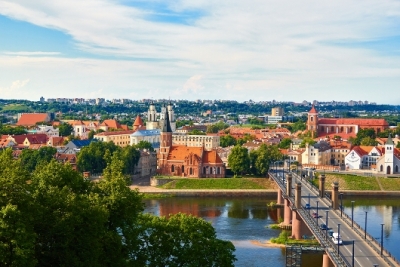
Lithuania is one of the three Baltic States in Europe that lies on the eastern shore of the Baltic Sea. It shares land borders with Latvia to the north, Belarus to the east and south, Poland to the south, and Russia to the southwest. Its capital is Vilnius, and the currency in use is the euro.
Lithuania is a parliamentary republic with a functioning prime minister and president. The Parliament is a single-chamber legislative body. The country is divided into 60 municipalities with directly-elected mayors.
Lithuania’s integration into the EU has been a never-ending process. The integration has opened a plethora of opportunities that have incredibly developed the country’s economic status and strengthened its social welfare systems. Lithuanian businesses have access to a market of 500 million consumers. Lithuania gained more than 10 billion euros in financial aid, boosting economic growth and creating jobs.
Lithuania became a full-fledged member of the European Union on 1 May 2004. It joined the Schengen zone in 2007 and has been a Euro area member since 1 January 2015. The member state also held the Council of the EU in 2013, regarded as one of the country’s most important contributions to the EU policymaking and implementation. The European Parliament has 11 members representing Lithuania.
Picture Credit : Google




